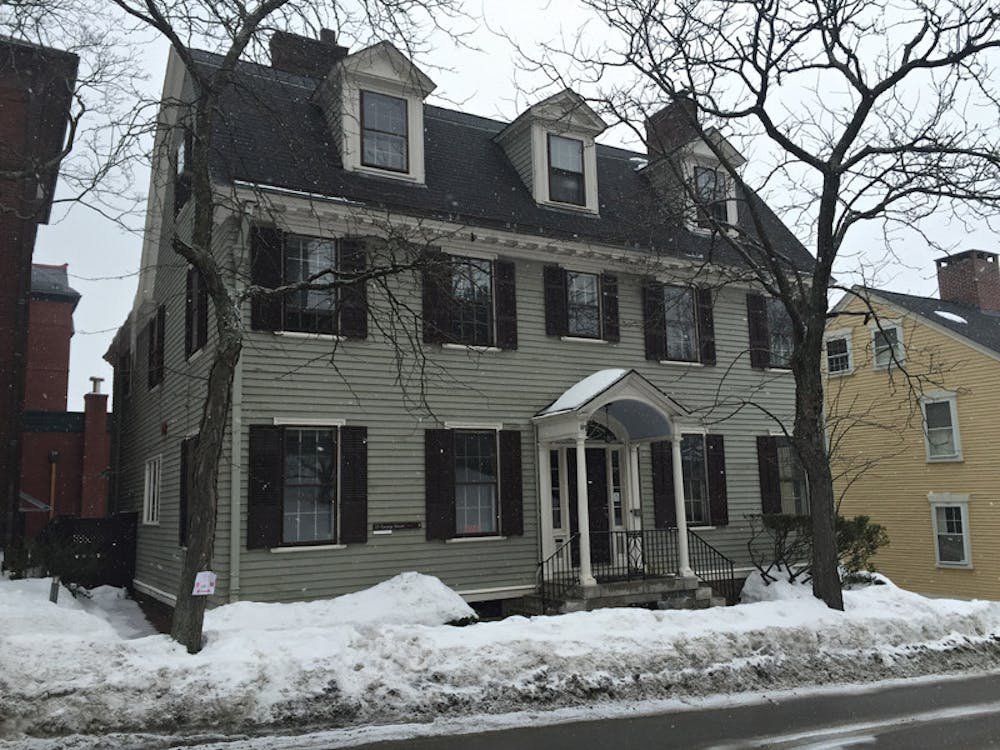Swearer Sparks, a student-run website that shares stories about social innovation in the Brown community and beyond, was formally recognized with the Ashoka U-Cordes Innovation Award at a conference Saturday.
Alex Braunstein, communications and outreach manager at the Swearer Center for Public Service and founder of the website, accepted the award at the Ashoka U Exchange conference in Washington, D.C.
“I was floored,” Braunstein said of receiving the honor. “It’s still a young program, but I think the work we are doing is innovative and something that the field of social (innovation) education really values.”
Swearer Sparks launched in May 2014 and is part of the Storytellers for Good program at the Swearer Center. The website aims to create a network that shares the innovative social work of students, faculty members and alums with the rest of the Brown community, Braunstein said.
Upon joining the Swearer Center in 2012, Braunstein noticed that Brown community members came to the center to explore ways of connecting with others in the field of social innovation work. Now, with more than 200 stories on the site, Swearer Sparks is an “evolving space for the social innovation and social justice community at Brown,” she said.
Ashoka offers funding and support to social entrepreneurs around the world, with more than 3,000 Ashoka fellows in 70 nations, according to its website. Last year, the University gained recognition as one of Ashoka’s 22 Changemaker Campuses and hosted the Ashoka U Exchange, a global conference focused on social entrepreneurship.
Candidates for the Ashoka U-Cordes Innovation Award are considered on the basis of innovation, replication and maturity. Swearer Sparks fulfills all of these criteria because it has been able to adapt and make corrections as it grows, said Diana Wells ’88, president of Ashoka, adding that the program could be easily replicated on other campuses.
“Storytelling is a very powerful tool, and when I think about the work Ashoka has done over these five years, we’ve helped the world see that the social entrepreneur exists across the globe,” Wells said.
“It’s been a gigantic leap forward to make our work visible,” said Kate Trimble, acting director of the Swearer Center. The website is “a really vibrant place for students to share their work” and “reflects the diversity of work we do here,” she added.
Five undergraduates are currently working directly with Braunstein to produce audio stories and other digital content for the website.
Sophie McKibben ’16, who grew up listening to National Public Radio and other radio stations, said she joined the program in fall 2014 because she wanted to find and tell stories. “The coolest thing about Storytellers for Good is that it lets people into the world of social entrepreneurship,” she said.
Isabel DeBre ’18, another storyteller, said the platform “unites the realms … of storytelling and social justice on campus.” DeBre has written about and spoken with Brown alums, photographers, representatives from National Geographic and Brown faculty members about the social work in which they are involved.
Student storytellers attend editorial meetings and workshops with Braunstein in which they learn skills in storyboarding, photography, digital media and storytelling, DeBre said. “The more I’ve been in it, the more I’ve gained,” she added.
This year, the program is expanding to cover a broader range of topics, said Liza Yeager ’17, a storyteller who joined in the fall of 2013, the year the program started. While Storytellers for Good focused on social innovation last year, it now includes social justice work on campus and other social change work in the community, she said.
“Part of why it’s so exciting … (is) I’ve been able to really shape the program,” Yeager added. “I get to spend time with a really small group of people who really care about the things they do.”





